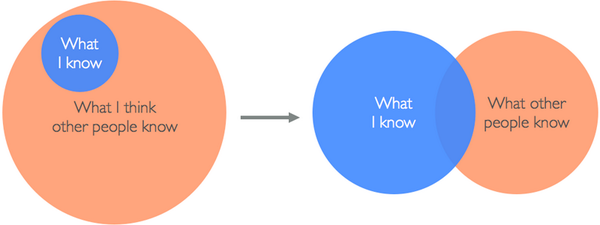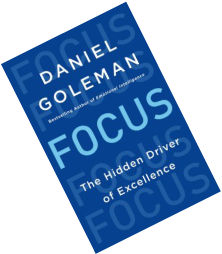|
0 Comments
“To be free is not merely to cast off one's chains, but to live in a way that respects and enhances the freedom of others.”
Nelson Mandela 'Long Walk to Freedom', 1994 In Praise of Doubt, by Bertold Brecht. A reminder not to rely on our ideas about certainty.24/10/2014 In Praise of Doubt
Bertolt Brecht, 1932 (translation: Taylor Stoehr, 2009) Praised be doubt! I advise you to greet Cheerfully and with respect the man Who tests your word like a bad penny. I’d like you to be wise and not to give Your word with too much assurance. Read history and see The headlong flight of invincible armies. Wherever you look Impregnable strongholds collapse and Even if the Armada was innumerable as it left port The returning ships Could be numbered. Thus one day a man stood on the unattainable summit And a ship reached the end of The endless sea. O Beautiful the shaking of heads Over the indisputable truth! O brave the doctor’s cure Of the incurable patient! But the most beautiful of all doubts Is when the downtrodden and despondent raise their heads and Stop believing in the strength Of their oppressors. … There are the thoughtless who never doubt Their digestion is splendid, their judgment is infallible. They don’t believe in the facts, they believe only in themselves. When it comes to the point The facts must go by the board Their patience with themselves Is boundless. To arguments They listen with the ear of a police spy. The thoughtless who never doubt Meet the thoughtful who never act. They doubt, not in order to come to a decision but To avoid a decision. Their heads They use only for shaking. With anxious faces they warn the crews of sinking ships that water is dangerous. Beneath the murderer’s axe They ask themselves if he isn’t human too. Murmuring something About the situation not yet being clarified, they go to bed. Their only action is to vacillate. Their favourite phrase is: not yet ripe for discussion. Therefore, if you praise doubt Do not praise The doubt which is a form of despair. What use is the ability to doubt to a man Who can’t make up his mind? He who is content with too few reasons May act wrongly But he who needs too many Remains inactive under danger.” http://www.psychologytoday.com/blog/the-brain-and-emotional-intelligence/201310/how-focus-changed-my-thinking-about-emotional-intel An excerpt from 'The Right Mindset for Success' - An interview with Carol Dweck, professor at Stanford University and author of Mindset: The New Psychology of Success
HBR IdeaCast, published 12 January 2012 http://blogs.hbr.org/2012/01/the-right-mindset-for-success/ SARAH GREEN: And what if you’re trying to encourage a growth mindset in someone who’s reporting to you? Because I’d imagine, for instance, a lot of managers would like to have someone who is the straight A student, right, who they can then hire that person and think they’ll get right to work. And I think it can be baffling for some people when someone that talented doesn’t perform up to standard. If you want to push someone who’s really talented into a growth mindset, how would you proceed? CAROL DWECK: Great question. First of all, yes. A lot of companies hire people with great pedigree, straight A. But [Patrick Welsh?] once said, these pedigrees don’t tell you about the passion and the drive to get things done. So what message should a manager or leader give to new recruits that would put them into more of a growth mindset? First, I think the message from the top is really important, that we value passion, dedication, growth, and learning, not genius. SARAH GREEN: Mm. CAROL DWECK: Second, we don’t expect that you’ve arrive here fully formed. We expect that you’ve arrive here ready to learn. Third, we expect you to stretch beyond your comfort zone and take reasonable risks, not to do the same thing you’re good at over and over and stay in your comfort zone. Fourth, we value process here, and we reward process. We reward taking on big but reasonable challenges. We reward pursuing them doggedly. We reward teamwork. And even if a project has not reached fruition or become successful, we reward that you’ve engaged in in a wholehearted and smart way. An excerpt from 'The Right Mindset for Success' - An interview with Carol Dweck, professor at Stanford University and author of Mindset: The New Psychology of Success
HBR IdeaCast, published 12 January 2012 http://blogs.hbr.org/2012/01/the-right-mindset-for-success/ CAROL DWECK: ... my research has shown, contrary to popular opinion, you don’t praise talent. You don’t praise ability. You praised process. SARAH GREEN: Mm. I would love it if you could talk a little more about that because that’s actually a piece of research that has changed the way my friends who are parents actually praise their kids, and I just think it’s fascinating. CAROL DWECK: We’ve done a lot of work now showing that praising someone’s talent puts them into a fixed mindset. The whole self-esteem movement taught us erroneously that praising intelligence, talent, abilities would foster self-confidence, self-esteem, and everything great would follow. But we’ve found it backfires. People who are praised for talent now worry about doing the next thing, about taking on the hard task, and not looking talented, tarnishing that reputation for brilliance. So instead, they’ll stick to their comfort zone and get really defensive when they hit setbacks. So what should we praise? The effort, the strategies, the doggedness and persistence, the grit people show, the resilience that they show in the face of obstacles, that bouncing back when things go wrong and knowing what to try next. So I think a huge part of promoting a growth mindset in the workplace is to convey those values of process, to give feedback, to reward people engaging in the process, and not just a successful outcome. An excerpt from 'The Right Mindset for Success' - An interview with Carol Dweck, professor at Stanford University and author of Mindset: The New Psychology of Success
HBR IdeaCast, published 12 January 2012 http://blogs.hbr.org/2012/01/the-right-mindset-for-success/ SARAH GREEN: So I think we’ve all experienced maybe the strange sensation of, say, going back to your high school reunion, whether it’s the 10 year, or the 20, or the 30 year, or something, and seeing the person you thought was going to be the next President of the United States or something who just– their career has just not panned out. In that case, you never intend to be that person. You never intend to be the person who has the fixed mindset. So how does someone fall into that trap? CAROL DWECK: That’s a great example because you think oh, this person’s most likely to succeed. They’ve gotten the A’s. They’re president of the student body. But because of their success, they may have fallen into a fixed mindset. They may have believed all the hype, the idea that they just have it. And they become afraid of making mistakes. They become afraid of tarnishing their image. And because they are fearful of venturing out of their comfort zone, they don’t take the risks or develop the abilities they’re capable of. You go back to the same reunion, and you see people you thought were not likely to succeed, and they’ve really done amazing things. These are the people who maybe didn’t have an image to uphold, didn’t feel the weight of other people’s expectations, and just followed their passions and developed their abilities. SARAH GREEN: So I’m wondering as you talk about that, is this a conundrum that we can get into at any time? If you become CEO of a company, say, at 45 or 55, can you suddenly find yourself falling into the same trap? CAROL DWECK: It’s possible. Many people have told me that when they were promoted into a prestigious position, they suddenly felt, now I have to have all the answers. Now, my period of growth is over. I have to be a fully mature person who knows everything. So yes, at any point, you can fall into that trap. People who become CEOs suddenly feel they have to be gods goddesses, and not people who say, gee, I don’t know. Let’s talk about it. Let’s think about it. Let’s feel our way through this problem. "There is a saying: yesterday is history, tomorrow is a mystery, but today is a gift. That is why it is called the "present."
"The first rule of Impostor Syndrome Club is you're not good enough to be in it."
Thanks to Dr Paul Coxon for tweeting this and making me laugh. The article gives 8 tips for overcoming Impostor Syndrome. They're all fairly obvious, and are still valid. However, it's not so easy for some of us. That's where coaching with someone who understands the subtle complexity of the phenomenon can help. If you suspect that you may have some characteristics of the syndrome, you will already know it's not so easy to change your habits around the feelings that go with feeling like a fraud and that you're about to be found out! To read more, please click to my webpage on Impostor Syndrome here Source: BufferOpen, Mike San Romån
This article from the Sydney Morning Herald includes good advice from Dr Suzy Green, a Coaching Psychologist in Australia, commenting on the lack of training and qualifications among some life coaches in Australia. The same issues seem to apply equally in the UK.
Dr Green would like to see more coaching psychologists step into the life coaching field: ''Psychologists are trained not only to help people deal with issues from the past and manages stressors in the present, but to help individuals design flourishing future lives, which is what life coaching is about.'' Read more: http://www.smh.com.au/lifestyle/life/anyone-can-be-a-life-coach-so-is-it-time-to-ask-who-is-really-coaching-you-20140618-zsd44.html#ixzz34zg4eqbI I agree wholeheartedly that coaching psychologists are well qualified to help people work through their stuck points in life as well as business coaching areas. Moreover, clients may have more deep seated problems, for example with anxiety, depression or trauma history, which an untrained coach would not recognise or know how to work with safely. Dr Green points out that life coaches will attract such clients, and so should have good referral contacts . I would add that supervision is also vital in working ethically and safely, and is a requirement for Coaching Psychologists associated with the British Psychological Society Special Group in Coaching Psychology in the UK. Finding a coach trained and experienced in working with psychological phenomena such as developmental and attachment issues is vital if clients with complex histories are hoping to transform their work and personal lives. Unresolved problems in these areas can make change very difficult and coaching could even exacerbate problems if not worked with sensitively and safely. This is a great 7 minute audio clip with Dan Goleman in conversation with George Kohlrieser of the IMD business school, about the importance of leaders to paying focused attention, in order to create a culture of sustained employee attention.
Leadership mood appears to be contagious (see my blogpost here: http://bit.ly/1jCryqJ). Dan blows apart the mistaken belief that leaders need to focus on what their teams are doing poorly, explaining how negative feedback triggers the amygdala and sabotages employees abilities to perform well. And George talks about how Leaders can deliver bad news from a positive and caring place, in order to allow their teams to hear and respond appropriately. Click here for the 7 minute audio clip on the More than Sound website: http://morethansound.net/2013/12/20/ep-108-kohlrieser-goleman-talk-focus/#.Uv0VO0J_uFF George Kohlrieser is professor of Leadership and Organizational Behaviour at IMD, and author of "Hostage At The Table: How Leaders Can Overcome Conflict, Influence Others, and Raise Performance" In this HBR article, Dan Goleman describes how two year's worth of new research has been compiled and shows how a leader's mood drives the mood and behaviour of their teams. And that this is a primary factor affecting the bottom line. It seems that the mood of an organisation's head honcho literally spreads through the organisation like an electrical charge.
"High levels of emotional intelligence, our research showed, create climates in which information sharing, trust, healthy risk-taking, and learning flourish. Low levels of emotional intelligence create climates rife with fear and anxiety. Because tense or terrified employees can be very productive in the short term, their organizations may post good results, but they never last." Goleman believes these results show that demonstrating Emotional Leadership (ie. optimistm, authenticity, positive energy) is a good Leader's main task. It's not easy for Leaders to sustain positivity, and coaching is a very supportive environment for fostering emotional Leadership. Click here to read more about Leadership Coaching And here to read the HBR article: http://hbr.org/2001/12/primal-leadership-the-hidden-driver-of-great-performance/ar/1 How to strengthen our concentration 'muscle' in the mind. Research shows that the more we can practice bringing our attention back to a single focus point, the greater capacity we have as the brain circuitry strengthens. In this short video clip for nicabm.com, Dan Goleman tells a very sweet story of how 7 year olds can develop the skill of attention, or 'cognitive control'. A long term study in New Zealand followed over 1,000 young people from age 4 to age 32, and found that infants who showed greater cognitive control aged four were more financially successful and healthier in their thirties. Cognitive control is a better predictor of financial success and health than either IQ or family of origin wealth. Click here to find out more from nicabm.com: http://www.nicabm.com/nicabmblog/concentration-and-the-brain/ A short and sweet HuffPost article on the developmental stages of children's attention, and why it's important for emotional regulation.
It's in their third year that toddlers are able to focus at will, to ignore distractions, and inhibit their impulses. Thereafter, young children begin making choiceful decisions, applying willpower demonstrating self-discipline. By the age of eight, most children have mastery on their mental attention which allows the development of brain pathways for cognitive skills like reading and writing. Link to the short article here: http://www.huffingtonpost.com/dan-goleman/-how-children-learn-self_b_4303423.html Andy talks to Harpers Bazaar about how mindfulness supports relationships through better communication, being fully present and less judgemental. It helps us manage the strong emotions that arise in our most important relationships, and even helps improve our sex lives by bringing us fully into our bodies instead of being caught up in thinking.
Read the short article here: http://www.harpersbazaar.co.uk/going-out/who-what-where/Free-mindfulness-lessons-with-andy-puddicome-headspace-valentines-day You can start the brilliant Headspace 'Take10' Programme FREE and see how 10 minutes of mindfulness for 10 days makes a difference in your relationships: http://www.getsomeheadspace.com/index.aspx Christine Riordan's blogpost for HBR neatly summarises how leaders can start to develop listening skills, and the benefits to their teams and organisations. The three areas she identified where leaders fail to listen actively and empathically are
... Sound familiar? The behaviours associated with empathic listening in the article are
Most crucial of all is that leaders follow up on the points raised, and Christine Riordan highlights the importance of demonstrating that people have been heard through follow up meetings, memos and incorporating changes. The positive benefits of empathic listening she identified are building trust, allowing others to air their feelings, sharing information and promoting collaboration in problem-solving. Read the full post here: http://blogs.hbr.org/2014/01/three-ways-leaders-can-listen-with-more-empathy/ “Most people do not listen with the intent to understand; they listen with the intent to reply.” Stephen R. Covey Today is Chinese New year, Happy Year of the Horse!
What a wonderful start to the new year, which will be markedly different to the slow considered energy of last year's water Snake. Some say the year augers plenty of adventures, energy and unexpected romance! I hope it brings what ever you most wish for, and that you enjoy the energetic change of this new moon. Find your Chinese Year Animal sign below, remembering that the Chinese Solar year begins on 4th February so if you were born between 1st January and 4th February, yours is the preceding calendar year.
|
Belinda Rydings,
|













 RSS Feed
RSS Feed